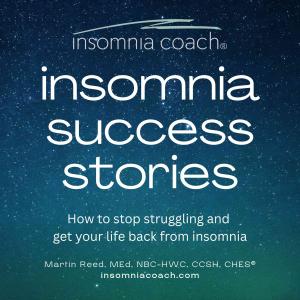Insomnia Coach® Podcast

A conversation about sleeping pills with Dr. Wallace B. Mendelson (#20)
Dr. Mendelson is a psychiatrist, sleep doctor, and author who works primarily in the field of sleep research and sleep medicine. He is perhaps best known for his research related to the properties of sleeping pills and the effect of medication on sleep. He most recently worked at the University of Chicago as a professor of psychiatry and clinical pharmacology and was the director of the school's Sleep Research Laboratory. Two books authored by Dr. Mendelson that might be of particular interest to those listening to this podcast are Understanding Sleeping Pills and The Science of Sleep. In this episode, Dr. Mendelson describes the evolution of sleeping pills, explains how they work, and shares information on their potential side-effects. We also talk about over-the-counter pills and supplements, and the evidence-based alternative to sleeping pills and recommended first-line treatment for chronic insomnia — cognitive behavioral therapy for insomnia (CBT-I). Click here for a full transcript of this episode.Click here to hide the transcript. Martin Reed: Welcome to the Insomnia Coach Podcast. My name is Martin Reed. I believe that nobody needs to live with chronic insomnia and that evidence-based cognitive and behavioral techniques can help you enjoy better sleep for the rest of your life. Martin Reed: The content of this podcast is provided for informational and educational purposes only. It is not medical advice and is not intended to diagnose, treat, cure, or prevent any disease, disorder, or medical condition. It should never replace any advice given to you by your physician or any other licensed healthcare provider. Insomnia Coach LLC offers coaching services only and does not provide therapy, counseling, medical advice, or medical treatment. The statements and opinions expressed by guests are their own and are not necessarily endorsed by Insomnia Coach LLC. All content is provided "as is" and without warranties, either express or implied. Martin Reed: Okay, Dr. Mendelson, thank you so much for taking the time to come on to the podcast today. Dr. Mendelson: Well, thank you, Martin. I'm delighted to have a chance to chat with you. Martin Reed: I'm really excited to cover this whole topic of sleeping pills, but before we move on to that, specifically, can you tell us a little bit more about your own background and how you got interested in the field of sleep? Dr. Mendelson: Well, sure. I guess the best way to describe, it is that I was a student in the 1960s. And it was a remarkably exciting time. In the field of psychiatry, the 1950s and early 60s, saw a revolutionary kind of evolution, prior to that time, the dominant process in American Psychiatry had to do with psychoanalytic treatment and Freudian notions which involve things like understanding the unconscious and the very powerful influence of early childhood on adult life. Although this was a very interesting thing and still I believe a very important thing. It didn't fully address the range of psychiatric patients in my opinion. And then suddenly in the 50s, a whole new era opened up, and it began with a discovery of Thorazine which revolutionized the way hospitalized patients were taken care of, the two major kinds of antidepressants, anti-inhibitors and tricyclic antidepressants came along. Dr. Mendelson: Probably a little more relevant to our today's talk, and 1961 the first benzodiazepine, Chlordiazepoxide, became available in the US and was seen as a very re...






 Visit Podcast Website
Visit Podcast Website RSS Podcast Feed
RSS Podcast Feed Subscribe
Subscribe
 Add to MyCast
Add to MyCast